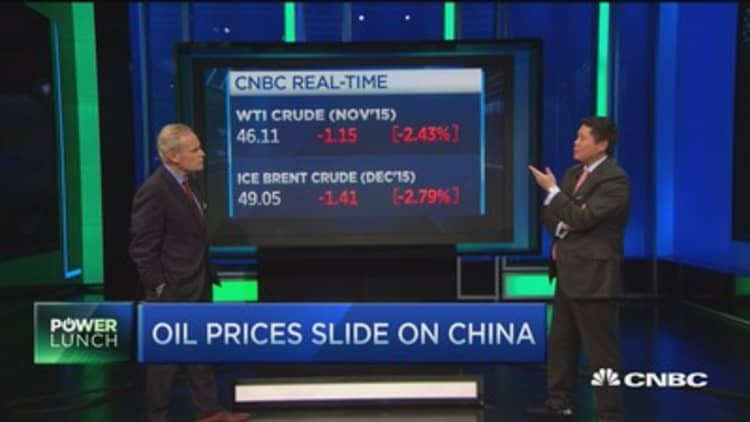Capital outflows from China topped $500 billion in the first eight months of this year, according to new calculations by the US Treasury that highlight the shifting fortunes in the global economy.
The outflows, which peaked at about $200 billion during the market turmoil in August according to the estimates released on Monday, have also contributed to a shift by Washington in its assessment of the valuation of China's currency, the renminbi.
In its latest semi-annual report to Congress on the global economy, the US Treasury dropped its previous assessment that the renminbi was "significantly undervalued". Instead, the Treasury said the Chinese currency was "below its appropriate medium-term valuation".
"Given economic uncertainties, volatile capital flows and prospects for slower growth in China, the near-term trajectory of the RMB is difficult to assess," Treasury economists wrote. "However, our judgment is that the RMB remains below its appropriate medium-term valuation."

The new language reflects the cautious welcome that the Obama administration has given to Beijing's efforts in recent months to prop up the renminbi since China announced on August 11 that it would allow a greater role for the market in setting the currency's exchange rate.
It is also a sign of the recognition in Washington that even as it believes China's currency should strengthen in the longer term, in the short term the renminbi is facing downward pressures because of several factors including what amount to historic outflows from China and other emerging economies.
"Market factors are exerting downward pressure on the RMB at present, but these are likely to be transitory," the Treasury said. Among those factors, Treasury economists wrote, was the unwinding of carry trades betting on the appreciation of the renminbi.
Beijing's August announcement of the change in its currency regime provoked fears that, after years of letting the renminbi appreciate, Beijing was intent on pursuing a devaluation to help exporters and boost flagging growth. The move to change the way in which the midpoint for the renminbi's daily trading band is set also provoked the two biggest shifts downward in China's currency against the dollar in 20 years.
More from the Financial Times:
Starbucks and Fiat face repaying millions of euros in tax
China-Brazil link is top threat to global economy
IBM slides on full-year earnings warning
In its report, the Treasury said it was still reserving judgment on Beijing's longer-term intentions.
"Ultimately, the implementation of the [new foreign exchange] mechanism — and specifically, whether China allows the RMB to respond flexibly to appreciation as well as depreciation pressures — will indicate how responsive the new mechanism is to market forces," the Treasury said.
But the report also recognised the fact that the People's Bank of China has been spending heavily to prop up the currency. In just three months — July, August and September — the PBOC spent a total of almost $230bn to support the renminbi, the Treasury said.
The spending by China's central bank was at least partly in response to the vast capital outflows from the country. In the first six months of 2014, capital outflows from China, not including foreign direct investment, amounted to $26 billion. In the first half of this year, according to the US Treasury estimates, they were $250 billion. That was followed by an estimated $70 billion - $80 billion in July and a further $200 billion in August following the shift in Beijing's exchange rate regime.
Eswar Prasad, a Cornell University economist who used to be the International Monetary Fund's China mission chief, said the new report highlighted the difficult position in which Beijing's summer foreign exchange move had left the US.
Read MoreUK rolls out red carpet for China's President Xi Jinping
"The US Treasury is clearly in an awkward position as a falling renminbi and a rising bilateral US trade deficit with China will stoke further domestic criticism of China's currency policy," he said.
"However, Treasury has little economic basis for criticising China's move towards greater exchange rate flexibility. Indeed, preventing the yuan from depreciating further would run counter to Treasury's calls for China to have a more market-determined exchange rate.

